
As you are waiting for your deliveries to cross the #suezchannel, here are a few factsabout this lifeline for the global economy and Egypt's government budget. A long🧵about #debt, #capitalism, #civilization, and related myths. 1/ 
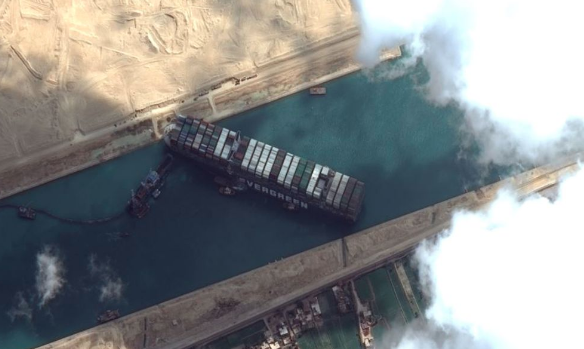
The construction of the channel from 1859 to 1869 was not only a technical achievement, but also the result of a geostrategic struggle between 🇫🇷 wanting to increase its trading power through a channel, and🇬🇧 interested in shortening and controlling the shiproute to India. 2/
At the period, the Egyptian Khedives Mohamed Said (1854-63) and Ismail Pasha (1863-79) had launched ambitious reform and modernization programs. The plan was to catch up to the "civilized" world by i.a. establishing property rights in land and liberalizing the economy. 3/ 



In the literature, you will read a lot about their lavish, wasteful lifestyle, especially Ismail's, which is said to be a major cause of Egypt's financial difficulties from the 1860s onwards. For example, Ismail is blamed for spoiling money on building an opera in Cairo. 4/ 

The opera house had a price tag of 160,000 GBP, and Verdi charged 150,000 gold francs for Aida, commissioned for the opening of the Suez Channel (but premiered only in 1871 due to Verdi being late and the French-German war). 5/ 
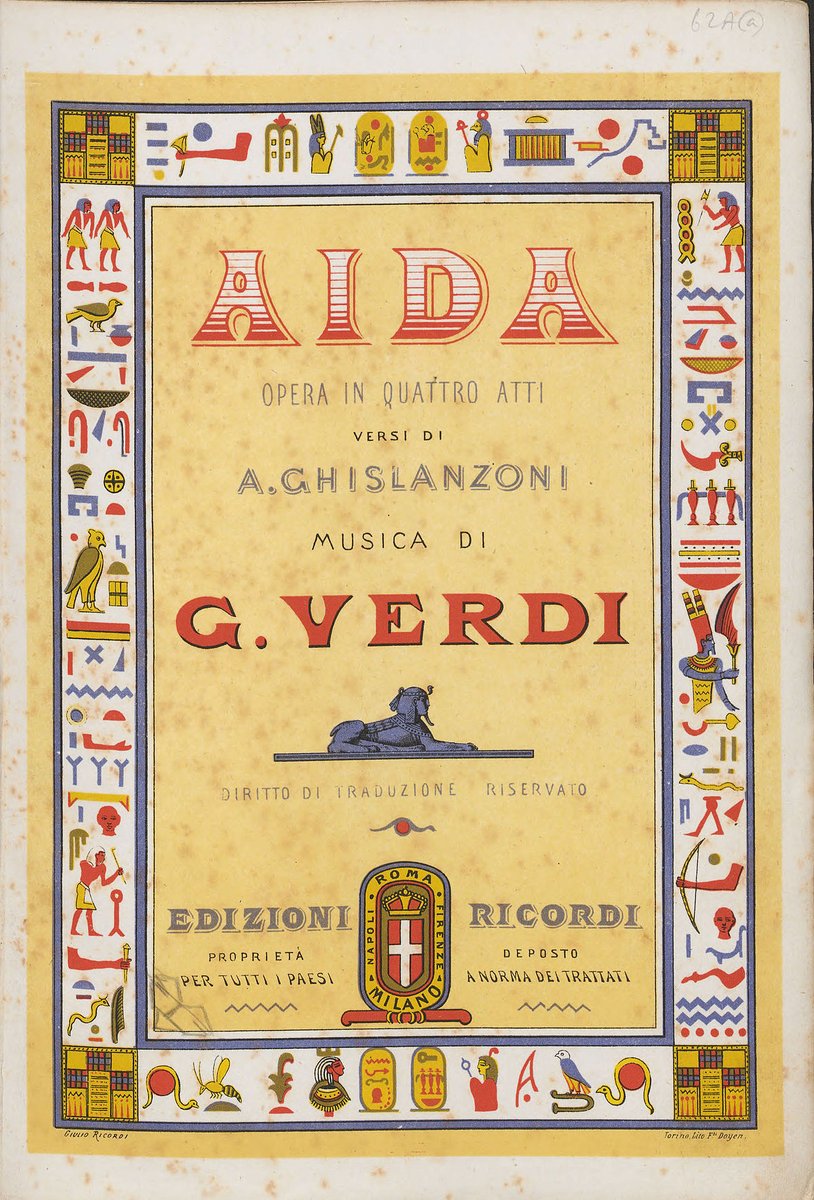
Ismail also built 4.500 schools, lots of railroad tracks, roads, harbours etc. Keep that information in mind for the moment. 6/
Enter Ferdinand de Lesseps, a French diplomat, appointed as Consul in Egypt in 1832. His dad Mathieu de L. had been French Consul from 1800 to 1810. His enthusiastic reports to Napoléon had won him the sympathy of Mohamed Ali Pasha, the founder of the Egyptian dynasty. 7/ 

During #quarantine upon entering Egypt, Ferdinand read the 1822 Mémoire on the possibility of a channel connecting India with Europe by J.M. Le Père. 8/ books.google.de/books?id=fj0GA…
Le Père had been part of Napoléons exploration to Suez, where Napoléon discovered the remains of the pharaonic channel project. 9/ 

During his stint in Egypt in the 1830s, Ferdinand de L. knit tight connections with the ruling house & young Mohamad Said. Fast forward to 1854. When Mohamad Said became Khedive, Ferdinand had just retired & remembered the channel project. He wrote to Mohamad and was invited.10/
Once in Egypt, he convinced Said of the Channel project. It resonated with the latter's modernization plans. They founded the Compagnie universelle maritime de Suez, a public-private partnership "avant la parole", but equally problematic as we shall see. 12/ 
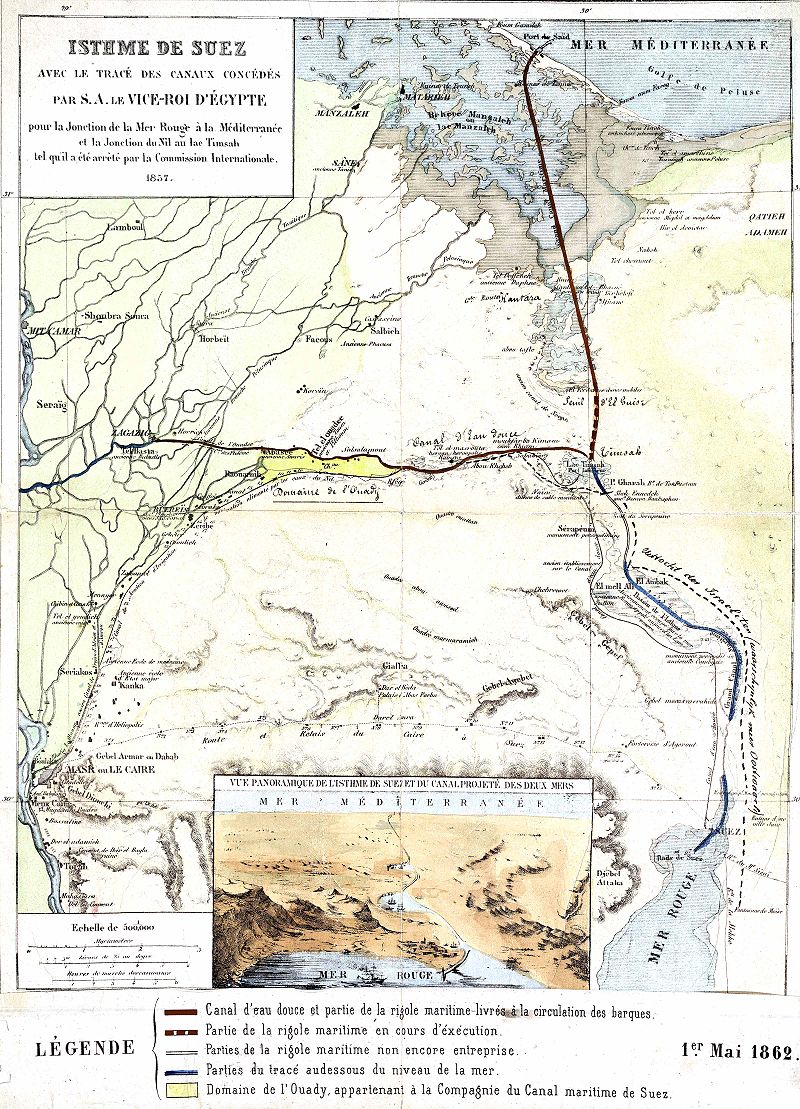
Said committed to buy 15% of the shares, Lesseps 10%, and 70% should be sold on the market. To find investors, they promised dividends of 5% p.a. (!!) during the construction. The company should run the channel for 99 years. 13/ 
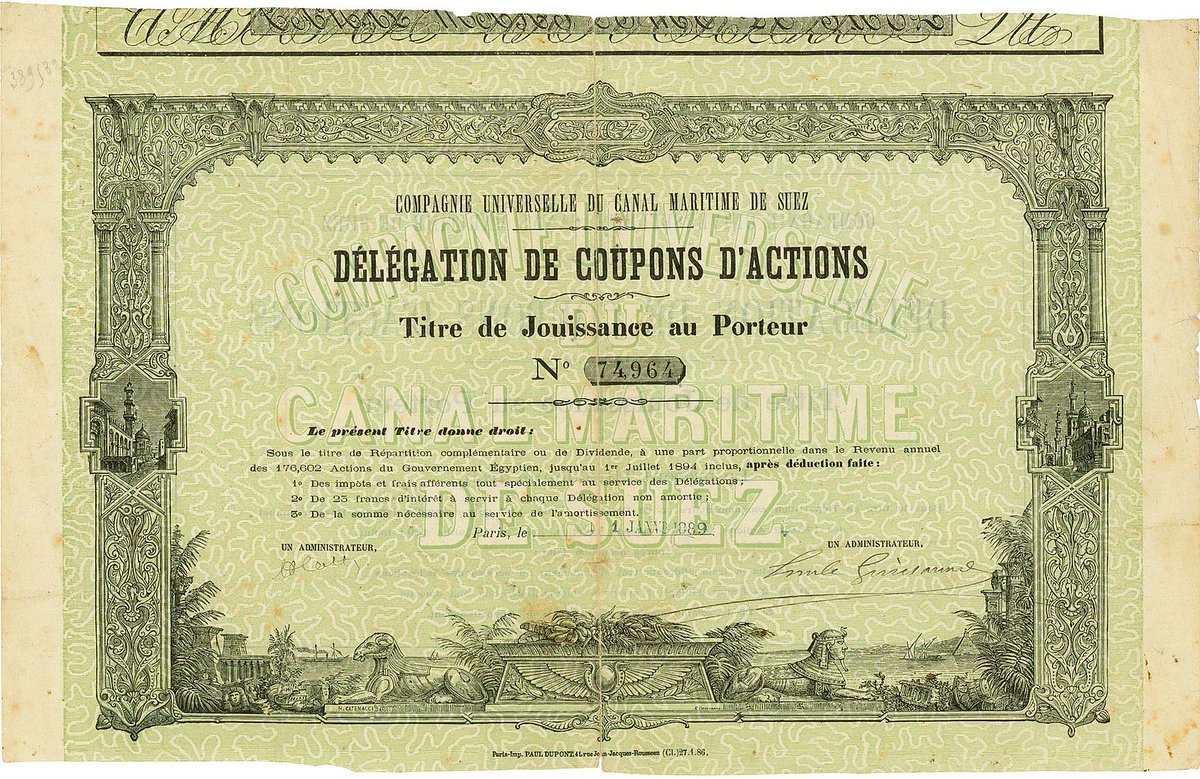
However, financial markets were sophisticated enough for the IPO to be a disappointment. About 30% of the shares did not sell. To save the project, Said bought these shares for 3.6m pounds. 14/
Construction began in 1859, an unprecedented technical achievement of sorts. They had to invent the construction machines first. 15/ 

Trouble was looming elsewhere, too. In 1863, the Sublime Porte objected to two clauses in the concession. A French arbitral tribunal granted the Compagnie damages amounting to 3.36m pounds, about half of Egypt's annual budget at the time. 16/
Additional extra expenditures for the Channel covered by the government, not the Compagnie, amounted to ca. 3.8m over the years. 17/
Further trouble loomed in the US. When the US civil war broke out in 1861, Egypt had heavily invested in cotton production to capitalize on the shortfall. When the civil war ended, cotton prices soon collapsed. Egypt lost 50% of its export revenue. 18/ 

Due to these (and other) financial constraints, Egypt borrowed money from European banks at (high) discount rates. Once the discount loans became too high, Egypt began issuing longer-term debt. 19/
Its first bond was placed in 1862. The interest coupon was 7% p.a. with a maturity of 30 years, and Egypt pledged its tax revenue from the Nile delta provinces as collateral. Still, it sold at a huge discount of 82.5% of its nominal value. 20/
No wonder that Egypt soon had to issue more debt. A debt spiral unfolded. In 1873, Egypt spent already 2/3 of its revenue on debt payments. In 1875, it fire-sold its shares in the Compagnie to 🇬🇧 for 4m pounds, a fraction of the original cost! 21/ 

Still, in 1876, Egypt defaulted. As a consequence, the Khedive had to establish the Caisse de la dette publique, a consortium governed by European in charge of Egypt's public finance. Soon, Egypt found itself under de-facto colonial control. 22/ 
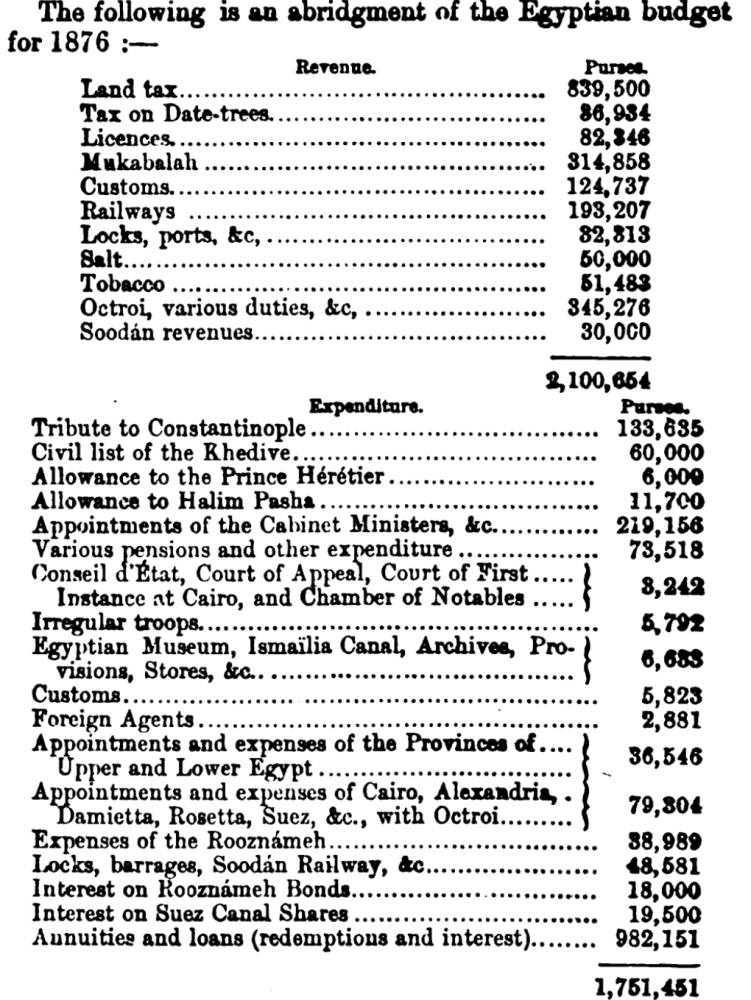
But of course, it was the Opera!!! How dare these barbarians endulge in culture which they can neither understand, nor afford. What a waste! 23/ 

Surely the Egyptians should be grateful for the guidance they received from European powers! As a side-effect of consolidating their control, they also governed the Egyptian antiquities administration, headed by French archaeologist Gaston Maspero for most of the period. 24/ 

Thankfully, they safeguarded the best pieces from the hands of these unruly people, and European museums generously sacrificed themselves to provide shelter till today. More on this in our paper, soon to appear in English. 25/

https://twitter.com/MPILheidelberg/status/1262688918673207296?s=20

Now one can criticize Egypt's modernization program in hindsight as overly ambitious. Also, corruption was widespread; and Ismail spent considerable amounts on purchasing farms for his family. 26/
But let's not overlook how private capital and public power impacted Egypt and led to its near-total political, economic, and cultural conquest and exploitation. When Nasser nationalized the Compagnie in 1956, 🇫🇷 and 🇬🇧 planned a (failed) coup. 27/
To end on a lighter tone, after the Compagnie had ruined Egypt, Lesseps tried the same for the Panama Channel, and failed miserably. Some justice at last. However, even though history does not repeat itself, Suez is everywhere. Beware of the crocodiles.🐊 

• • •
Missing some Tweet in this thread? You can try to
force a refresh


